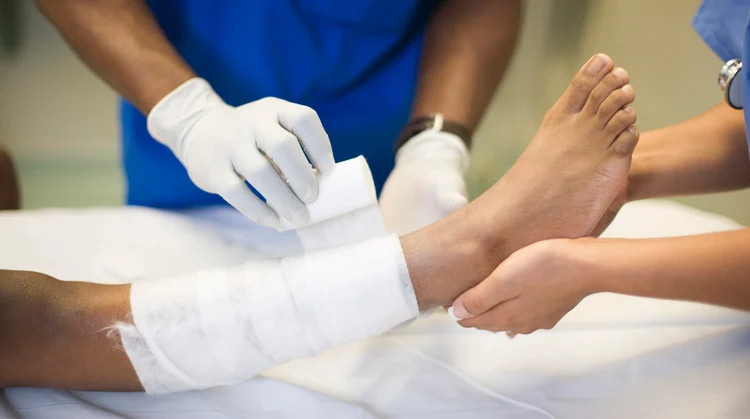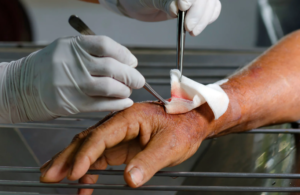Understanding Wound Treatment Centers
A wound treatment center is a specialized healthcare facility dedicated to diagnosing, treating, and managing wounds that require advanced care. These centers focus on wounds that do not heal through routine treatment, such as chronic wounds, diabetic ulcers, pressure sores, surgical wounds, and trauma-related injuries. The importance of a wound treatment center lies in its ability to provide targeted care that reduces recovery time and minimizes complications. These facilities often use advanced medical technologies and evidence-based protocols tailored to the patient’s specific condition. Specialized wound care is essential because untreated or poorly managed wounds can lead to infections, loss of mobility, or more severe health complications. Patients benefit from a multidisciplinary approach that combines medical expertise with personalized care. Choosing the right wound treatment center can significantly impact healing outcomes and overall quality of life.
Services Provided by a Wound Treatment Center
Wound treatment centers offer comprehensive services designed to promote healing and prevent further complications. These services often include a complete wound assessment to determine the wound’s cause, depth, and severity. Advanced dressing techniques are used to protect the wound and optimize healing conditions. Debridement procedures remove damaged tissue to encourage healthy tissue growth. Many centers offer hyperbaric oxygen therapy (HBOT) to improve oxygen supply to the wound area, enhancing tissue regeneration. Negative pressure wound therapy (NPWT) is also common, using suction to remove fluids and promote faster healing. Infection control and antibiotic management are vital components of wound care to prevent worsening conditions. Patient education on wound care at home is another crucial service to ensure consistent healing progress.
How a Wound Treatment Center Improves Healing
A wound treatment center uses advanced technology and a coordinated healthcare approach to improve healing outcomes. Healing at such centers is guided by evidence-based protocols that ensure every step of treatment is optimized. Multidisciplinary care teams—often including doctors, nurses, physical therapists, and nutritionists—work together to address all factors affecting wound healing. Technology plays a key role, with specialized equipment for wound measurement, monitoring, and imaging. Personalized care plans are designed to meet the needs of each patient, ensuring treatments are as effective as possible. Regular wound monitoring helps detect early signs of infection or complications, allowing for prompt intervention. The result is faster recovery, reduced pain, and improved quality of life for patients.
Choosing the Right Wound Treatment Center
Choosing the right wound treatment center is a decision that requires careful consideration. Important factors include the center’s credentials, technological capabilities, and accessibility for patients. Certifications and accreditation, such as recognition by the Joint Commission or wound care societies, indicate high-quality care standards. Patients should also evaluate the availability of specialized treatments relevant to their condition. Reading patient reviews and testimonials can provide valuable insight into the center’s reputation and patient experience. Insurance coverage and affordability are also key considerations to avoid financial burdens during treatment. Ensuring that the wound treatment center offers ongoing support and follow-up care is critical for maintaining long-term wound health.
The Patient Experience at a Wound Treatment Center
A patient’s journey through a wound treatment center often begins with a comprehensive initial consultation. This includes a thorough evaluation of the wound, medical history review, and discussion of treatment options. Personalized treatment planning follows, based on the specific needs of the wound and patient health factors. Patients typically receive detailed instructions for wound care between visits, ensuring consistency in treatment. Follow-up care is essential to monitor healing progress and make adjustments when necessary. Many centers also offer emotional and psychological support to help patients cope with the challenges of chronic wounds. The patient experience is designed to combine medical expertise with compassion, providing reassurance throughout the healing process.
Advances in Wound Care Technology
Technology plays a transformative role in modern wound care. Telemedicine allows patients to consult wound specialists without frequent in-person visits, improving accessibility and convenience. Wearable wound monitoring devices track healing progress in real time, alerting care teams to potential issues before they worsen. 3D imaging and wound measurement tools provide precise assessments, allowing doctors to tailor treatments more effectively. New therapies continue to emerge, including regenerative medicine techniques that enhance tissue repair. These innovations improve healing speed, accuracy, and patient comfort. Wound treatment centers that incorporate advanced technology often achieve better outcomes and higher patient satisfaction.
Preventing Wound Complications
Prevention is a core principle in wound care, especially for patients at higher risk of complications. Proper wound hygiene is essential, including gentle cleaning and appropriate dressing changes. Nutrition and lifestyle choices can significantly affect healing, making a balanced diet and adequate hydration vital. Patients should be educated to recognize warning signs such as increased redness, swelling, or discharge. Regular check-ups and wound assessments help identify issues early, preventing more severe problems. A wound treatment center provides guidance to ensure patients follow best practices at home. Preventing complications is as important as treating the wound itself to ensure long-term recovery and health.
Frequently Asked Questions (FAQ)
What types of wounds are treated at a wound treatment center?
A wound treatment center handles a variety of wounds, including chronic wounds, diabetic ulcers, pressure sores, surgical wounds, and trauma-related injuries.
How do I know if I need specialized wound care?
If a wound fails to heal after several weeks, shows signs of infection, or is linked to an underlying condition like diabetes, specialized wound care may be needed.
How long does wound treatment usually take?
Treatment duration varies depending on wound severity, underlying health conditions, and patient adherence to care plans. Healing can take weeks to months.
Are wound treatment center visits covered by insurance?
Many insurance plans cover specialized wound care services, but coverage depends on your policy and the center’s accreditation.
What should I prepare for my first appointment?
Bring medical history, a list of current medications, wound care records, and any questions for the healthcare provider.
Takeaway
Choosing a wound treatment center is a vital decision for anyone dealing with a wound that requires specialized attention. These centers combine advanced technology, multidisciplinary expertise, and compassionate care to provide patients with the best chance of recovery. From comprehensive assessments to personalized treatment plans and preventive guidance, a wound treatment center offers more than just wound care—it delivers hope and improved quality of life. Patients and caregivers should prioritize centers that provide proven treatment methods, accessible care, and continuous support. Investing time in selecting the right wound treatment center can make all the difference in achieving successful healing and avoiding complications.






